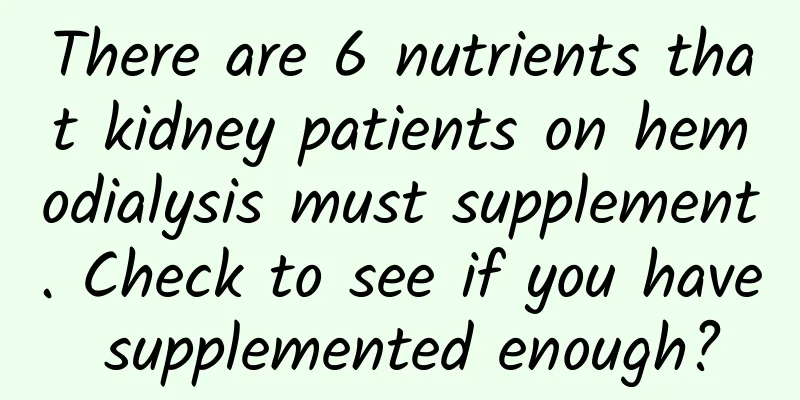What should a postpartum woman do if she has lumps and pain in her breasts?

|
Many women experience breast lumps and pain after childbirth. This pain will not only affect women's normal confinement period, but also affect the baby's breastfeeding. Generally, this situation will make it difficult for the baby to absorb the mother's milk, and it will also cause breast pain in women. So what should a woman do if she has lumps and pain in her breasts? Symptoms of postpartum breast lumps: There were no lumps before delivery, but one or two days after delivery, after milk production, some lumps suddenly appeared in the breasts. Some were small bumps, and in some cases, the entire breast was severely swollen. Moreover, the milk doesn't come out, and I have to squeeze it hard with my hands to get out a little bit. Swelling or tingling throughout the breast. If the above phenomena occur, it can be determined that it is milk stasis, which is commonly known as milk blockage. The reason for milk blockage is that the mammary ducts are blocked when milk is just produced after giving birth. The milk accumulates inside, forming small lumps or lumps, which seriously affect milk supply. Some mothers have milk regurgitation after one or two days of blockage because it is not cleared in time, and the baby has to eat milk powder. Some of them developed mastitis and needed to go to the hospital for injections and medication. What's worse, some people have to undergo surgery due to suppurative infection caused by delayed treatment. We remind you: Don’t underestimate the small postpartum lumps, as they can cause great harm to the mother. Don't be blindly careless. Reasons for hard breasts after childbirth: 1. Lobular hyperplasia may be caused by fluctuations in hormone levels in the body. You can try taking Xiaoyao Pills for conditioning. Patients with breast hyperplasia should go to the hospital for a specialist examination once a year, and if necessary, have a color ultrasound, infrared breast radiography or molybdenum target photography examination. It is recommended to take Ru'an tablets for treatment. 2. Milk stasis. If the stasis is severe, infection will occur and cause mastitis. Mastitis is caused by milk stasis. If milk stasis cannot be eliminated in time, it will cause excessive pressure, local congestion and edema, and bacterial invasion to form inflammation. Treatment of postpartum breast lumps 1. Small remedies Remove the thorns from the cactus, grind it into a paste, and apply it to the affected area (if you add an appropriate amount of Glauber's salt and Indigo, the effect will be better, for example, you can add 10g of each into the cactus paste and mix well. 2. Chinese medicine conditioning Chinese herbal decoction treatment has great advantages, and there is no embarrassment of drug resistance, so the effect is much better. 3. Chinese medicine massage treatment This is the most effective treatment. The specific method is to relieve breast edema and expel milk. It can be solved by a professional masseur, and most patients can be cured in one treatment. 4. Antibiotic infusion therapy This is the conventional and least effective method. 5. If the type is more serious, comprehensive treatment can be used simultaneously with various methods for better results. |
<<: Are the pathologies of pelvic effusion and pelvic inflammatory disease different?
>>: Will I have my period while breastfeeding?
Recommend
What are the main factors for selecting automotive lubricants? What does the fluidity of lubricants represent?
The lubricating oil of the car is the lubricating...
How long after painless uterine curettage can I eat?
Painless curettage is usually used to treat tissu...
Do I need to take drospirenone for three months?
Drospirenone is a short-acting emergency contrace...
What does poor ultrasound transparency mean?
There are many problems with the human internal o...
Why do boys have personalities like girls? How can boys change their personalities like girls?
Many people will find in their lives that some bo...
Can I have a natural birth for my first child and a natural birth for my second child?
Under normal circumstances, if the first child ha...
Does having erotic dreams during late pregnancy have any effect?
When a pregnant woman is pregnant, every move is ...
What to do if the endometrium is thin after miscarriage
Abortion is often a last resort. In fact, it caus...
Is it normal to have stomach pain after having an IUD inserted?
Many couples have tried every possible way to avo...
Beauty and skin care tips, a must-have for lazy people
Beauty and skin care is a lifelong career for wom...
What are the benefits of swimming for women? Is regular swimming good for the skin?
In the hot summer, many people want to go swimmin...
Is it harmful for women to masturbate frequently?
I believe many people know that excessive masturb...
What is the cause of black discharge in leucorrhea?
Leucorrhea is a physiological phenomenon of women...
Can I still have a baby after having five abortions?
Abortion is a relatively effective method of misc...
Uterine prolapse after childbirth
Uterine prolapse refers to a condition in which a...









